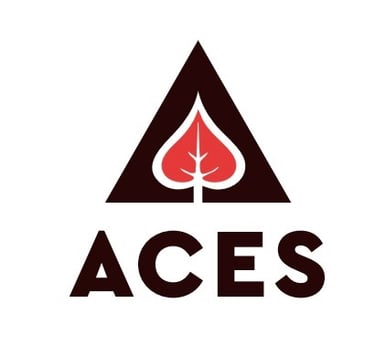Aces: REvenue growth doesn't need to be a fair fight
Revenue Growth Doesn't Need to be a Fair Fight


AI made you faster. Are you closing more revenue?
Imagine playing 5-card draw poker against 3 opponents and you have this hand:


Is that a winning hand?
Statistically speaking, around 23% of the time it is.
Let's give that some context.
In B2B selling, average win rates sit between 20-30%.
So that pair of twos? That's most sales teams right now.


But what if you had a better pair?
If you upgrade the 2's to 7's, does that make a difference?


Yes. That increases your odds to 39%.
In the world of B2B selling, those odds are approaching best in class.
But here's why you're still losing 61% of the time:
It's the "more hay, same needle" problem.
When you use AI deep research functions, you create lots of loosely relevant information because you have one AI trying to do everything with just your prompt to guide it.
You get press releases, LinkedIn updates, news mentions... but it's essentially hay.
Lots of bulk information that feels comprehensive, but lacks focus.


In our AI world, the belief is this upgrade can happen by using LLMs to research clients and write persuasive material. The process is fast and the output seems impressive. 50-page reports from hundreds of sources feel thorough and deep.
In every deal, there's a key to victory. Something specific about this buyer and situation that unlocks the revenue. That's your needle.
All that volume creates the dangerous illusion of advantage, but it doesn't help you find the key you actually need.
If the goal is more revenue, is more hay going to increase your odds or just your workload?
LLMs give you more: more data, more questions, more uncertainty, more homework.


Take a moment and think: Why are you doing deep research? What's the actual goal?
What they don't give you is better odds or more wins.
If you were playing poker and your hand had a 61% chance of losing, are you feeling truly confident?
Most people would say no.
Yet in business, we celebrate that 39% win rate and call it success.
That's because there's a giant risk here, and it's not hallucinations or AI taking your job. The big risk is the dangerous confidence of "Good Enough."


The danger with "good enough" is that it's a threshold that becomes a finish line.
You've improved, so you're ready. For the sake of efficiency, you move on to the next step.
Ask Yourself...
1. If AI research and messaging is easy for you, what about your competitors?


2. If they're using the same tools to generate insights and persuasive messages, what makes your output different from theirs?
3. And when buyers can't tell the difference between your AI preparation and everyone else's, what do they use to make their decision?
In poker, if two opponents both have pairs of sevens, it comes down to secondary cards.
Just like in B2B selling, when similar solutions are presented with too much similarity,
it usually comes down to who's price is better (lower).
But what if you had better odds?
Now, in that same poker scenario, instead of spending time upgrading a hand that's still likely to lose,
imagine this: take your original pair of twos and add a second ace to it.


Your odds have jumped from 23% to 73%.
That's an unfair advantage that "good enough" can never beat.
Anyone who really understands sales knows there are no guarantees, and you should never have complete confidence until the deal is signed. But great sellers have one common trait: they're obsessed with increasing their odds. Anything that can raise their probability, even a little.
That's what makes them elite. For them, "good enough" isn't the ending point, it's the bare minimum starting point.
At ACES, we believe this deeply. The company was founded with a single mission: to increase your odds of winning revenue.


To flip your odds, you need four things that have
NEVER existed together before:
Speed - in an AI world of limited patience and growing expectations, speed is a non-negotiable, but it's not enough. In sports, a team can "play fast" but without coordinated strategy and great team synergy, it's just lots of fast chaotic movements that actually decrease your odds of winning.
Depth - to overcome good enough it takes a level of depth of intelligence formerly found with Big 4 firms, but fast depth isn't the answer if it's one-size-fits-all.
Specificity - buyers are selfish and only care about their business and success, so if your value is too generic, it doesn't resonate. But even if you had deep specificity fast, it can't just be a few select accounts.
Scale - ambitious revenue growth doesn't come from a handful of wins, it's about a consistent win rate throughout the year. If hitting quota were easy, you'd be done halfway through instead of fighting to the last day of the year to hit your numbers.
For the deals that matter, "good enough" isn't just insufficient.
It's the most expensive mistake you can make.
What you need is a way to get all four dimensions at once.
That's your second ace. And once you have it, you skip right past "good enough" to unfair advantage.


Ready to find your second ace?

At ACES, we've solved the impossible trade-off.
Our Intelligence Engine delivers all four dimensions through a breakthrough 5-level architecture that transforms raw signals into strategic advantage. Combined with our Advisory team's battle-tested expertise, we create Deal-Specific Revenue Blueprints that turn intelligence into winning action.